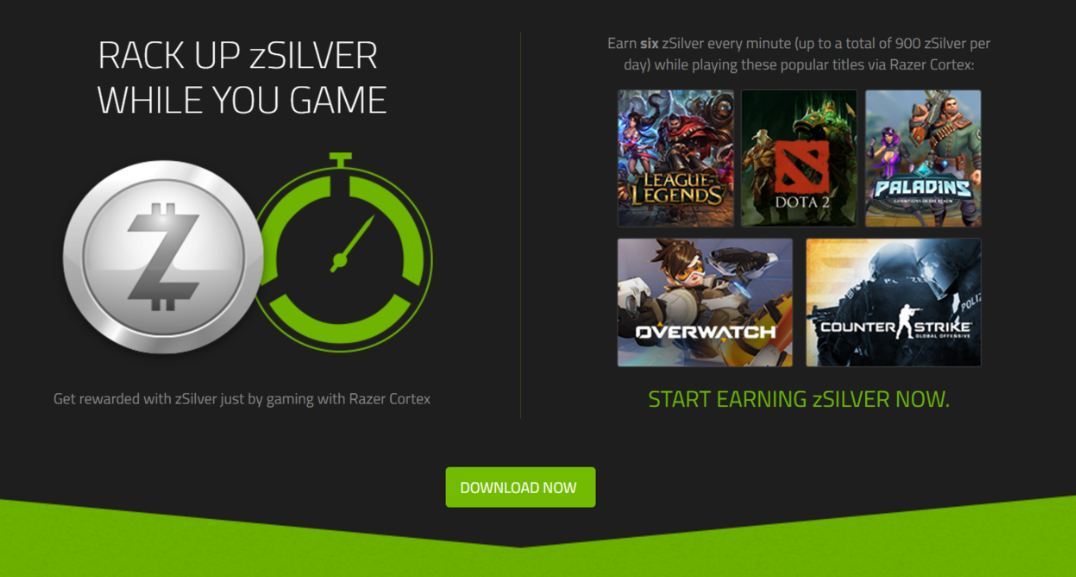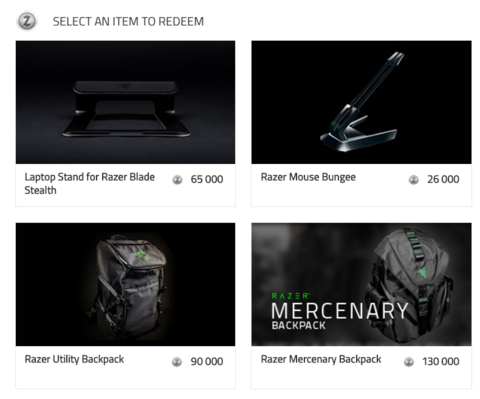Razer Rewards Players With Loyalty Currency
Through Razer gaming platforms, players rack up rewards. Eventually.
If you've ever dreamed of a cushy life playing games, the peripheral brand Razer is offering a way to dip your toe in the warm waters of the playtesting life--minus the tedious repetition of bugfixing. Dubbed paid-to-play, the program rewards users of its performance-optimizing and streaming service Cortex and its tournament-organization platform Arena with zSilver, its loyalty currency.

If you've ever dreamed of a cushy life playing games, the peripheral brand Razer is offering a way to dip your toe in the warm waters of the playtesting life - minus the tedious repetition of bugfixing. Dubbed paid-to-play, the program rewards users of its performance-optimizing and streaming service Cortex and its tournament-organization platform Arena with zSilver, its loyalty currency.
It works a lot like prize tickets at an old-school arcade: play enough games, and you'll eventually store up enough for something sweet. But much like prize tickets at the arcade, it'll take a long while to earn enough to actually buy anything. Earnings cap out at 900 zSilver per day, and the cheapest item available (a stand that helps corral stray cables) costs 26K--most others ring up at several times that.

All in all, if you really want some sweet Razer gear, you're probably better off just buying it--which Razer is no doubt counting on. That doesn't mean zSilver is no better than arcade tickets. Playing games like Overwatch or League of Legends through Cortex and Arena doesn't cost anything.
"Gamers may reap the benefits of a rewards system simply by doing things they’re already doing," says Razer CEO Min-Liang Tan of the system. In other words, if the games offered on Cortex and Arena aren't your style, Razer's plan doesn't offer much. But if you're going to play them anyway, why not get a little extra for it?
Razer's program stems from the business trend of gamification--employing game-like reward structures to entice an audience--and shows that even games themselves aren't exempt from being "gamified." This seemingly inside-out logic may work in the short term, but Razer and other companies considering similar strategies should be wary of overjustification--by offering too many rewards for playing, they risk making games a chore rather than a pleasure.
Got a news tip or want to contact us directly? Email news@gamespot.com
Join the conversation